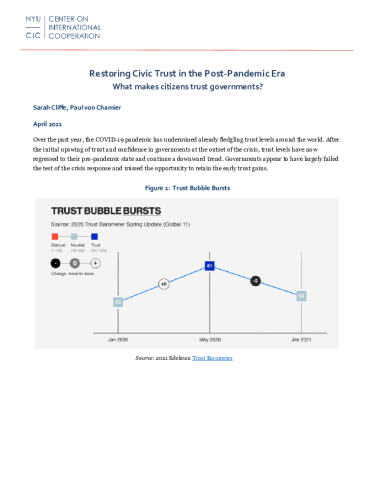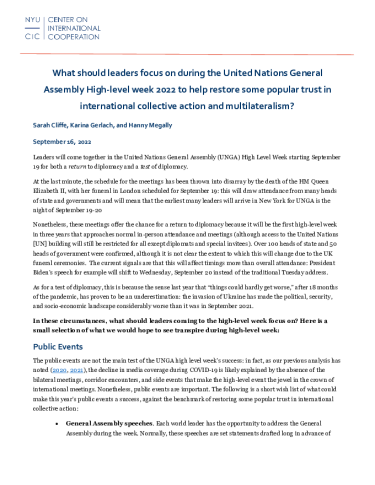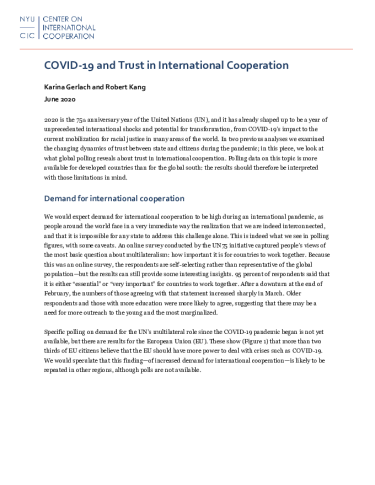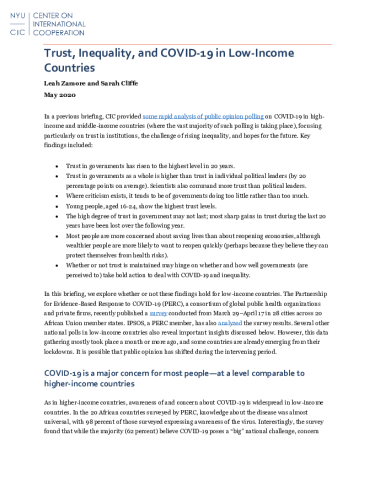We are still engaged in a race against time of increasing urgency, not only in terms of flattening the pandemic curve in situations such as those India and many Latin American countries face, but also in restoring trust that government and international institutions can act, and act successfully, in face of 21st century crises.
We are seeing both deeply negative and truly positive developments. Many parts of the world enter the depths of the third wave of the pandemic, with record highs in new daily infections, and in human suffering behind the numbers. Yet at the same time there is positive news: on medical innovation, on international liquidity, on tax cooperation, and on climate. The question is which will win out: can positive progress move fast enough to counteract the trust crisis?

In 2020, CIC published a number of pieces on trust in high-, middle- and low-income countries and in international organizations. Last summer, trust in government had in many parts of the world increased: we made the argument that people were faced with a brutal reminder of what governments are for and hence had turned back to the state, but also warned that trust bubbles in crises often evaporate within a year if people do not see sustained and credible action.
This analysis from the CIC team looks at what empirical research says about why trust matters for many different forms of political, social, and economic development—and why we should take declining trust seriously. The team also takes a look at what we know about the determinants of trust, in particular corruption, inequality, and history. Lastly, this analysis discusses the different policy options to restore and nurture trust.
Read the full analysis: Restoring Civic Trust in the Post-Pandemic Era



